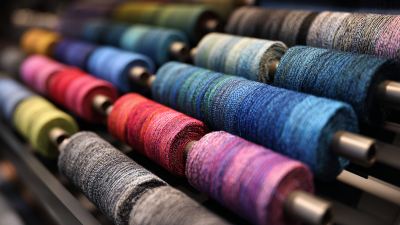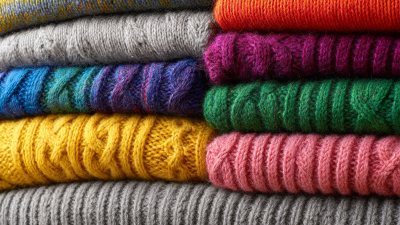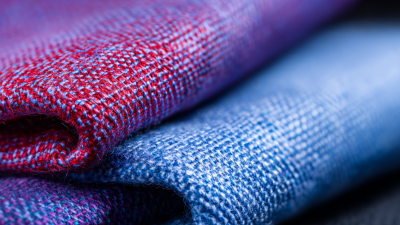In the ever-evolving world of fashion and home textiles, understanding the nuances of different fabric types is paramount. As we dive into 2023, the significance of "Knit Fabric" has surfaced as a standout category, offering both versatility and comfort. Renowned industry expert, Dr. Amanda Weaver, an authority in textile technology, emphasizes the importance of this fabric type by stating, "Knit fabrics provide an unparalleled combination of elasticity and breathability, making them essential for modern design."
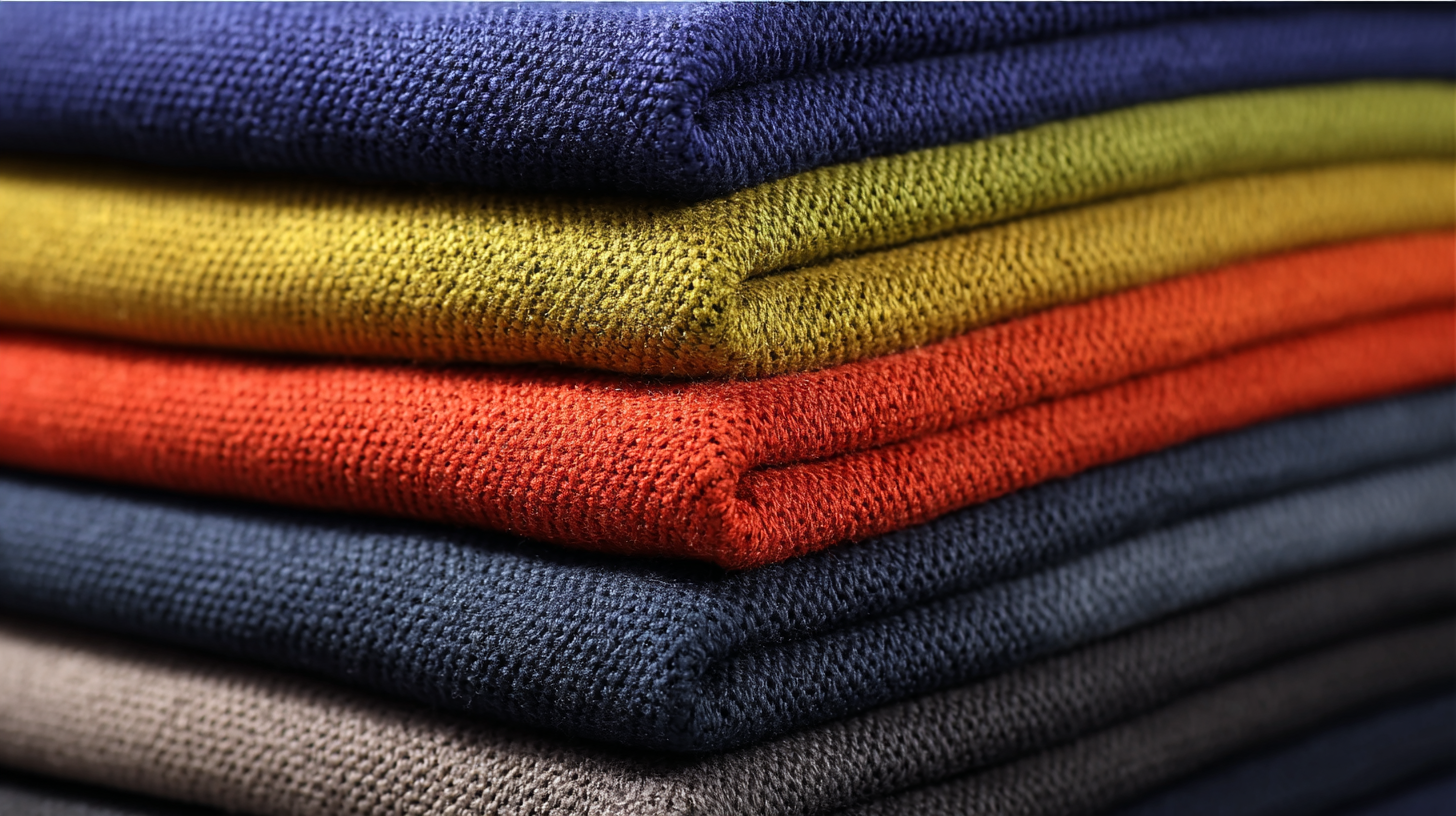
From high-fashion runways to cozy home interiors, knit fabrics have gained traction for their ability to seamlessly adapt to various and applications. This year, designers and creators are embracing an array of knit fabric types that elevate both aesthetic appeal and functional qualities. Whether it's the luxurious softness of merino wool or the durable stretch of jersey, each knit fabric contributes uniquely to the fabric landscape, allowing for endless creativity in design.
As we explore the top 10 knit fabric types you need to know about in 2023, we will uncover how these materials shape current trends and enhance the functionality of garments and home textiles alike. Understanding these fabric choices not only enriches the creative process but also empowers consumers to make informed decisions, paving the way for a more sustainable and stylish future in fashion and home decor.
Knit fabrics have become a vital part of both fashion and home textiles, offering unique benefits that cater to various needs. One of the essential characteristics of knit fabrics is their stretchability, which allows them to move with the body, making them ideal for activewear and casual clothing. This elasticity is achieved through the looped construction of the fabric, resulting in a soft and comfortable wearing experience. Additionally, knit fabrics have a natural drape that enhances the fit and flow of garments, creating stylish silhouettes suitable for various occasions.
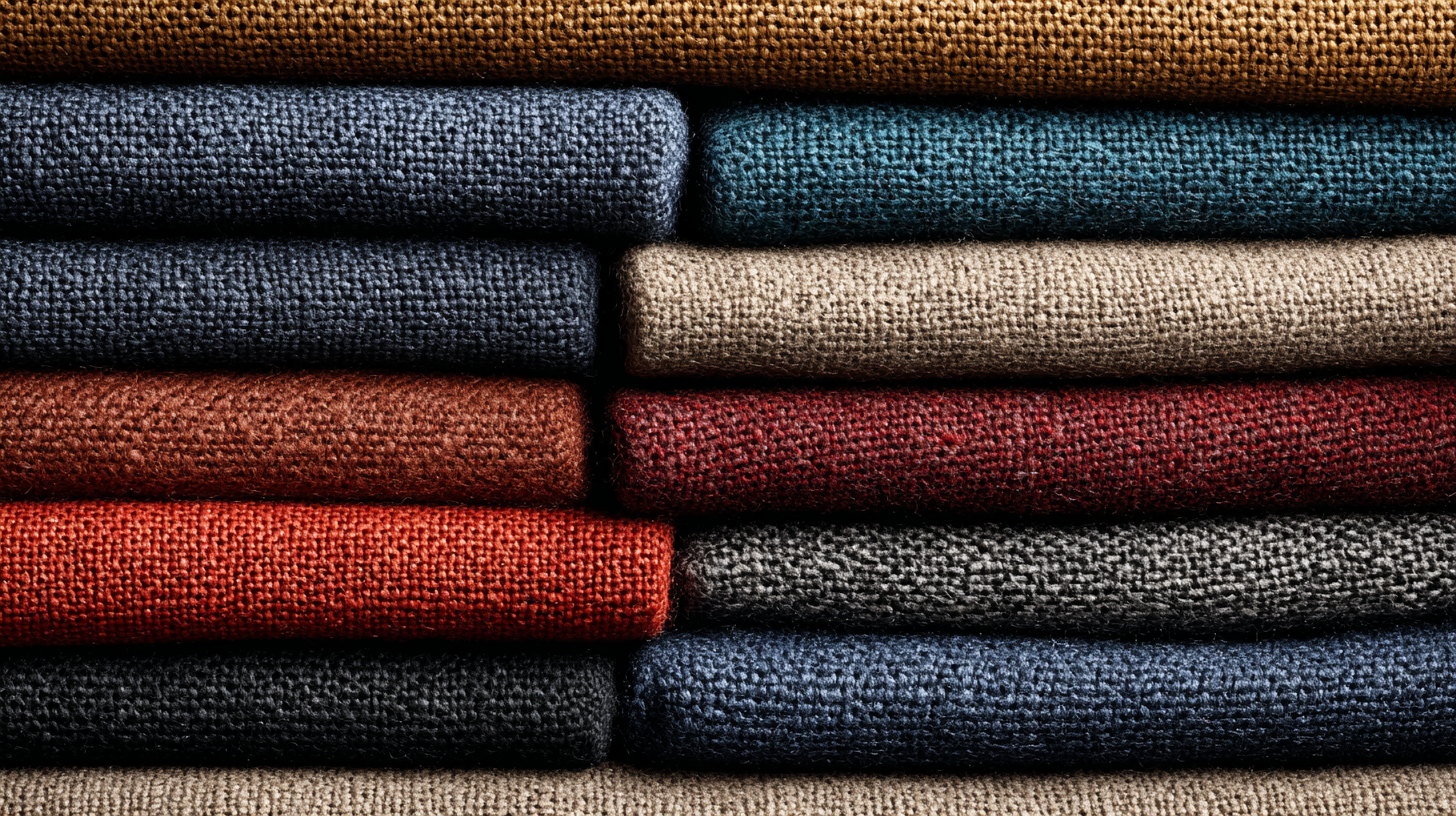
Another important attribute of knit fabrics is their breathability. The open structures of knitted textiles allow air to circulate, making them comfortable for year-round wear. This property is particularly beneficial for home textiles, such as throws and bed linens, where comfort and temperature regulation are crucial. Moreover, knit fabrics are generally easy to care for, with many types being machine washable and resistant to wrinkles. These characteristics make knit textiles a popular choice for designers looking to combine functionality with aesthetic appeal in both fashion and home decor.
As we step into 2025, several knit fabric types are emerging as the favorites in the world of fashion and home textiles. Among the most popular are funnel-neck knitted dresses, which offer both style and comfort, making them a staple for autumn and winter wardrobes. These dresses, often made from soft, stretchy fabric blends, can easily be dressed up or down, ideal for a variety of occasions. Additionally, the trend of layering will continue to thrive, as versatile knits such as lightweight cardigans and over-sized sweaters become essential items for those looking to stay cozy.
Another notable trend is the rising popularity of sweatshirts being replaced by chic knit sweaters. Inspired by celebrity styles, these sweaters come in a range of designs, from classic cuts to more modern silhouettes, appealing to a broad audience. Knit fabrics provide warmth and texture, making them perfect for winter layering and elevating casual outfits. As homes also embrace these comforting textiles, cozy throw blankets crafted from high-quality knit materials will play a significant role in enhancing living spaces, blending functionality with aesthetic appeal.
As we move closer to 2025, the demand for eco-friendly knit fabrics continues to rise, driven by consumer awareness of the fashion industry's environmental impact. Choosing sustainable materials not only helps reduce our carbon footprint but also promotes ethical manufacturing practices. While many brands tout their use of “sustainable” fabrics, it's crucial to look beyond the buzzwords. Materials like eco-polyester and organic cotton are great options, but not all alternatives are created equal. It's essential to research the sources and production processes of these textiles to avoid greenwashing.
**Tips:** When selecting sustainable knit fabrics, consider opting for natural fibers such as organic linen or bamboo, which are not only biodegradable but also require less water and chemical input during production. Additionally, prioritize brands that transparently share their sustainability practices and certifications, allowing you to make informed choices. Remember, supporting ethical fashion helps to drive change within the industry while adding stylish, eco-conscious options to your wardrobe.
This chart illustrates the popularity index of various knit fabric types essential for fashion and home textiles in 2023. The index ranges from 1 to 10, indicating each fabric's relevance and usage in sustainable fashion choices.
Knit fabrics have emerged as a crucial component in both fashion and home textiles, offering unique versatility that enhances both apparel and interior design. Their ability to stretch, breathe, and conform to various shapes makes them an ideal choice for garments that prioritize comfort and movement. In home textiles, knitted materials can be utilized in everything from cozy throws to stylish upholstery, providing warmth and texture that elevate any space. Designers are increasingly experimenting with these fabrics, blending them with intricate patterns and colors to create statement pieces that reflect contemporary aesthetics.
The application of knitted textiles goes beyond traditional uses, extending into innovative realms such as technical textiles and chromic fabrics. These advanced fabrics not only cater to fashion needs but also meet the demands of modern performance and functionality. The rise of chromic textiles, which change color based on environmental stimuli, is particularly noteworthy, as it brings an exciting dynamic to both clothing and home decor. As brands continue to explore new technologies and knitting techniques, the potential applications for knit fabrics are boundless, promising a bright future for their role within both sectors.
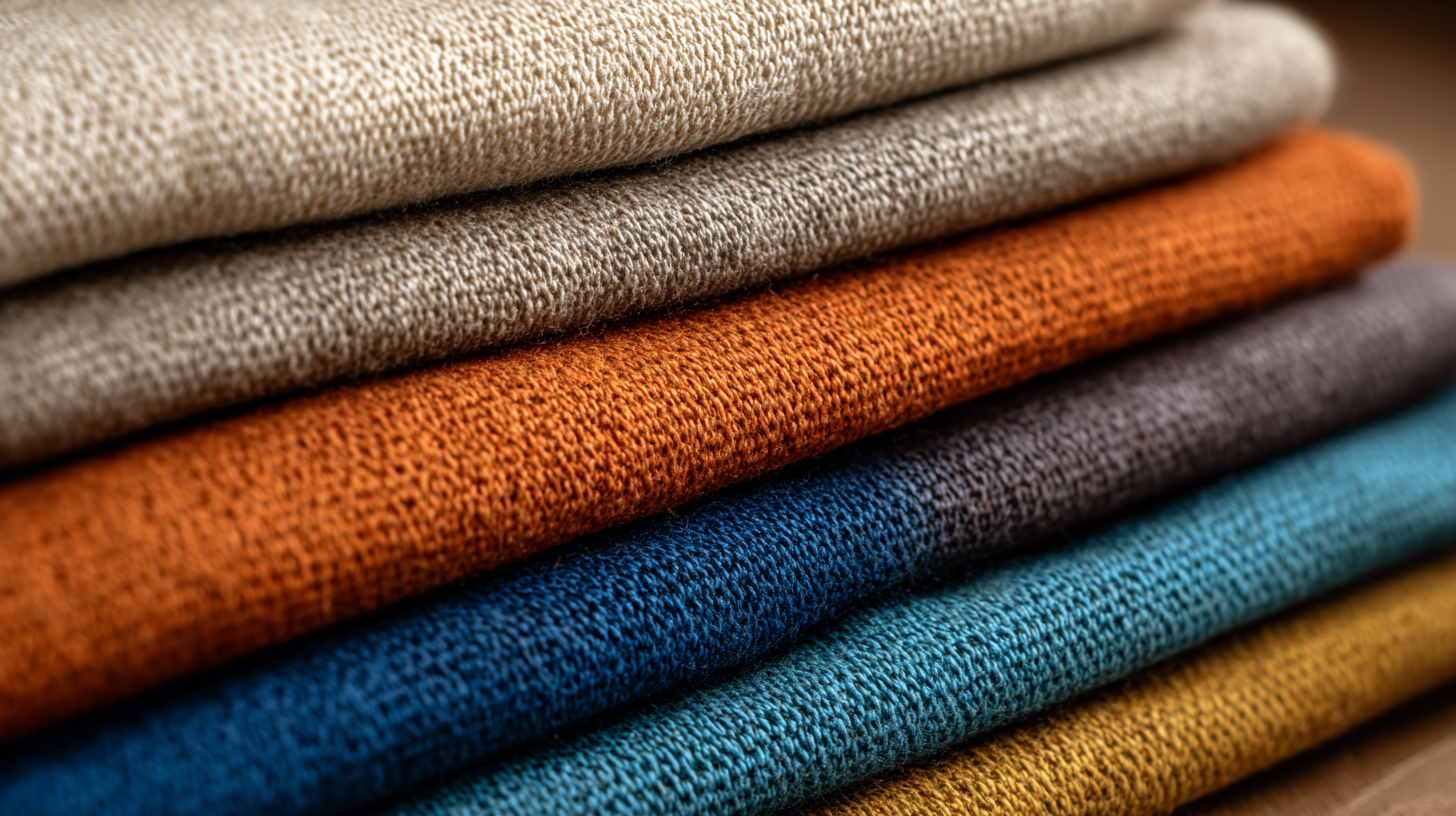
As the world of textiles evolves, innovative knit fabric technologies are set to revolutionize both fashion and home textiles by 2025. One of the most exciting advancements is the development of eco-friendly fibers made from recycled materials. These sustainable knits not only reduce waste but also provide high-performance characteristics like moisture-wicking and breathability, making them ideal for activewear and everyday comfort.
Tips: When choosing knit fabrics, always consider the end use. For example, fabrics designed for layering should be lightweight and stretchy, while those used for outerwear should have added durability and weather resistance. Keep an eye on certifications such as OEKO-TEX, which ensures that textiles are free from harmful substances.
Moreover, advancements in 3D knitting technology allow for the creation of seamless garments, reducing production waste and enhancing fit. This technique offers designers the flexibility to create complex patterns and textures without the constraints of traditional cutting methods.
Tips: Explore local designers who utilize cutting-edge technology in knit fabric creation. This not only supports small businesses but can also lead to unique and innovative pieces in your wardrobe or home. Embrace the future by being informed about these trends and incorporating them into your fashion and design choices.
| Knit Fabric Type | Common Uses | Key Features | Innovation Trends (2025) |
|---|---|---|---|
| Cotton Knit | T-shirts, Dresses | Soft, Breathable | Eco-friendly dyes |
| Jersey Knit | Activewear, Underwear | Stretchy, Comfortable | Smart fabrics |
| Rib Knit | Sweaters, Cuffs | Elastic, Textured | Integrated sensors |
| Interlock Knit | T-shirts, Pajamas | Thicker, Reversible | Sustainable production |
| French Terry | Hoodies, Sweatpants | Soft, Absorbent | Moisture-wicking |
| Sweater Knit | Sweaters, Cardigans | Warm, Cozy | Temperature-regulating |
| Velour Knit | Loungewear, Upholstery | Luxurious, Soft | Enhanced durability |
| Tulle Knit | Tutus, Decorative purposes | Lightweight, Sheer | Innovative textures |
| Bamboo Knit | Eco-friendly Clothing | Antimicrobial, Soft | Biodegradable options |

